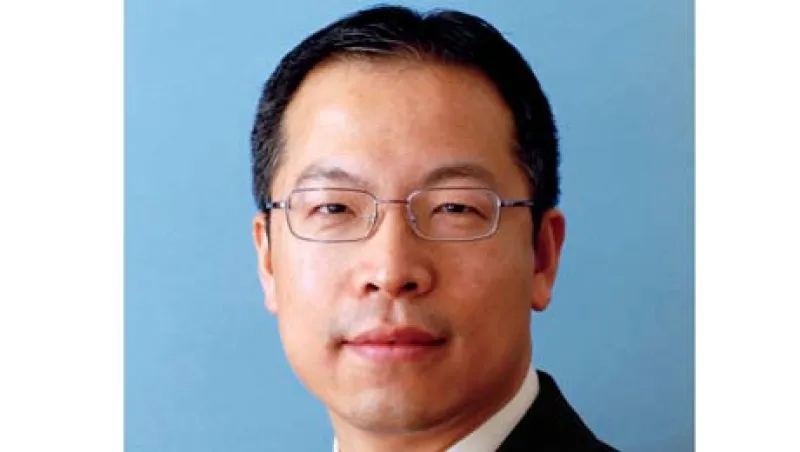As manager of the first domestic hedge fund to win Chinese government approval, Zhen Liu sees vast opportunity. “There is a huge demand in China for real absolute-return products like hedge funds, especially from those newly minted high-net-worth individuals and large institutions flush with cash,” says Liu, head of index and quantitative strategies at Guangzhou-based E Fund Management Co., China’s third-biggest mutual fund manager, with 136 billion yuan ($21.3 billion) in assets as of August 31, according to industry research firm Z-Ben Advisors. “Their needs are not being met.” Known as E Fund Market Neutral Arbitrage Strategies — by law, a Chinese hedge fund exists only as a collection of managed accounts — Liu’s fund began trading on April 11 and manages just 650 million yuan. But its strong performance in tough conditions points the way forward for China’s fledgling hedge fund industry.
Through August 31 the fund had gained 3.52 percent, while the Shanghai Shenzhen CSI 300 Index fell 15.26 percent. It had an annualized Sharpe ratio of 2.1 and beat the Eurekahedge Asian Hedge Fund Index, which lost 2.08 percent during the same period.
Liu already has competition. China International Capital Corp. and Guotai Junan Securities Co. reportedly have launched government-approved hedge funds, while China Southern Fund Management Co. and Citic Securities Co. are said to be planning them. “Most of the new domestic Chinese-domiciled hedge funds are sponsored by the big banks and are targeting high-net-worth individuals,” says Maiko Nanao, a researcher in Tokyo with New York–based hedge fund research and advisory firm Aksia.
The government is letting E Fund and other large asset managers launch hedging products partly out of concern over the surge in small, unregulated hedge fund firms. These shops number as many as 350, according to Shenzhen-based research firm China Hedge.
Liu, 45, is a Wall Street–trained hedge fund veteran. Born and raised in Beijing, he holds master’s degrees in physics from the University of Utah and in computer science from the University of Southern California. He began his career in 1995 as a programmer at New York–based quantitative hedge fund firm D.E. Shaw & Co. and was promoted to vice president two years later.
In 1998, Liu witnessed the perils of market risk when D.E. Shaw lost big in the same meltdown that claimed John Meriwether’s hedge fund Long-Term Capital Management. Liu left the firm and stayed in the U.S. for the next decade, working at Banc of America Securities, Sagamore Hill Capital Management, UBS Investment Bank and Brevan Howard Asset Management. Before returning home to join E Fund in late 2009, he ran Red Capital, a Greenwich, Connecticut–based quantitative hedge fund with a Beijing office.
Borrowing from hedge funds on Wall Street and in Greenwich, where he still keeps a home, Liu and his team of quants at E Fund have created financial models that exploit large inefficiencies in the volatile Chinese A-share market. “Lots of people in China told me that it is hard to make money in A shares, but I told them it is even harder to make money on Wall Street, since the markets there are so much more efficient,” he says. “In this respect the Chinese market is an unexplored gold mine.”
Regulated Chinese hedge funds can run no more than 200 managed accounts. Liu gathers clients’ minimum 1 million yuan investments into a master fund, then allocates to various strategies according to market opportunities and risk-and-reward expectations.
His methods may be unremarkable by U.S. and European standards, but Liu deploys the most-advanced hedging and arbitrage techniques in Chinese asset management. Late last year the government began allowing mutual fund managers to hedge 20 percent of their equity holdings with index futures; it also removed hedging limits for managed accounts.
Using CSI 300 index futures to hedge market risk, Liu profits from price differences through statistical, index, Chinese event-driven and other arbitrage strategies. “We try to avoid bets on the market direction but to achieve a steady absolute return with minimal amount of risk,” he says.
China also approved margin trading and short-selling last year, but Liu doesn’t use them because they’re restricted to a few dozen stocks. So far, most mutual fund managers haven’t followed him into index futures. But by the end of 2012, he reckons, China’s regulated hedge fund space could swell to 50 billion yuan in assets from about 1 billion yuan today.
Wealthy Chinese investors need absolute-return products, Liu explains. Thanks to a crackdown on speculation, real estate is no longer an option. And with interest rates rising and the A-share market 50 percent below its record high in 2008, stocks and bonds don’t appeal either.
“Others just woke up to the fact that hedge funds can make real money in a bear market,” Liu says. “We still have to work harder and smarter to stay in the front of the pack.”






